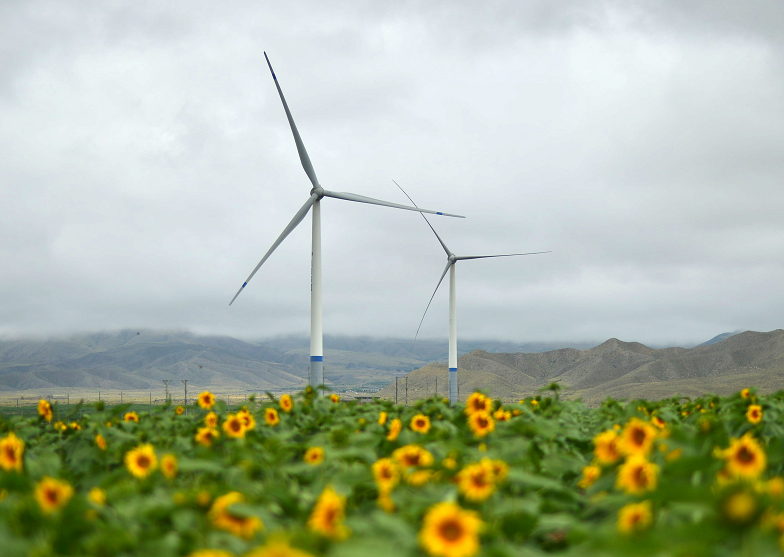BEIJING, Feb. 1 (Xinhua) -- Interim rules for carbon emissions trading management took effect Monday in China, a key step forward in pursuit of the country's national emissions trading system.
Earlier in 2020, China announced that it will strive to peak carbon dioxide emissions by 2030 and achieve carbon neutrality by 2060, thus prioritizing the missions in 2021.
China, the world's second-largest economy and also the biggest investor in renewable energy sources, is walking the talk on its carbon neutrality pledge. The country has been shouldering the responsibility of tackling climate change and fulfilling its commitment to carbon neutrality.
China's promise on carbon neutrality not only impacts its green economy restoration and high-quality development but is also crucial in protecting the ecology of the planet and pushing forward global cooperation in coping with climate change.
Advanced and in-depth carbon reduction technology will emanate as the embodiment of a country's core competitiveness while walking on the development path of decarbonization will be deemed an important symbol of a modern country.
Compared with many developed countries that have decoupled carbon emission and economy, China is currently in the stage of increasing carbon emission.
The rise of temperature recorded in China is higher than the global average and its direct economic loss incurred due to climate change was seven times higher than the global average. Therefore, practical and effective measures to control carbon dioxide and greenhouse gas emissions and curb climate change are the need of the hour.
As the largest developing country, China has been facing a dilemma and challenges in balancing ecosystem management and developing economy to improve people's livelihood.
Carbon neutrality entails a complete economic and societal shift to green and low carbon usage, thus drastically decreasing the use of coal, a major source of energy in China. Though the extensive shift would certainly pose a challenge to the country's customary economic development model, China is confident to achieve carbon neutrality.
Low carbon industries like renewable energy, smart power grids and new energy vehicles are being widely developed across the country, which is in line with the objective of high-quality economic development. China has announced new goals on lowering its carbon dioxide emissions per unit of GDP by over 65 percent from the 2005 level by 2030.
To that end, controlling carbon emissions has been included in China's top policy priorities for 2021. The country will formulate an action plan for peaking carbon dioxide emissions before 2030, and offer support to areas with favorable conditions to enable them to peak the emissions ahead of schedule.
At present, the pressing task for China is controlling and reducing the carbon dioxide emission increment and pushing for the attainment of carbon peak at the earliest. The country is committed to promoting greener economic and social development in all respects while pursuing high-quality development.
To strike a balance between carbon emission and absorption, the country is working toward reducing greenhouse gas emissions as well as enhancing carbon sink, carbon capture and carbon storage.
By 2019, carbon emission intensity in China had decreased by 48.1 percent compared with 2005, exceeding the target of reductions in carbon emission intensity by 40 to 45 percent between 2005 and 2020, showed a white paper on China's energy development.
Protecting the eco-environment is not only a major political issue related to the mission and purpose of the Chinese government, but also a major social issue related to people's wellbeing.
China has always attached great importance to this issue. Besides, it has deemed resource conservation and environmental protection a fundamental national policy and regarded sustainable development as a national strategy.
During the 14th Five-Year Plan (2021-2025), the country will implement stricter coal control measures, further develop non-fossil energy, improve the absorption capacity of photovoltaic, wind power and other new energy, actively develop advanced technologies and industries such as hydrogen production from renewable energy. During these five years, China should strictly control the rebound and achieve zero growth in coal consumption.
China has witnessed and enjoyed the positive changes brought about by low carbon usage in fields including industries, transportation and construction. Carbon neutrality will become a way of life and production, and contribute to the global climate governance system. Enditem




 A single purchase
A single purchase









